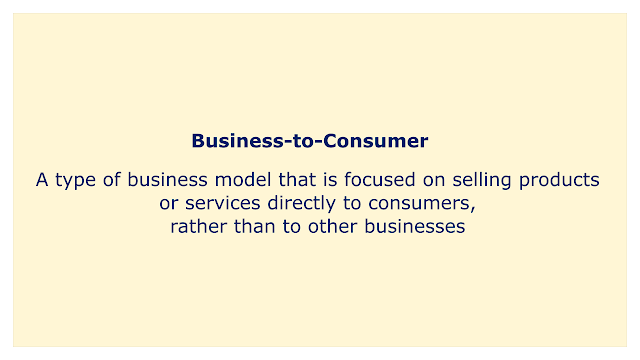 |
| Image: Moneybestpal.com |
In contrast to selling to other businesses, the business-to-consumer (B2C) strategy is centered on selling goods and services directly to customers. This approach differs from indirect connections between a firm and its clients through intermediaries in that it emphasizes direct interactions between the company and its end users. Retail businesses, manufacturers of consumer goods, and service providers that address the needs of particular customers frequently adopt the B2C model.
Businesses that sell to consumers directly (B2C) want to build a relationship with them and give them a streamlined, simple experience. To do this, they must tailor their supply chain, marketing, and sales tactics to the unique requirements and tastes of their target market. To reach a larger audience and offer a more individualized customer experience, B2C enterprises frequently use digital technologies, such as e-commerce platforms and social media.
When using the B2C business model, businesses often place a strong priority on providing their customers with high-quality items, prompt and effective delivery, and great customer service. Companies must comprehend their target clients in order to build services that will match their requirements and expectations in the B2C market. In order to be relevant and competitive, they must also constantly analyze and adjust to changing market conditions, consumer behaviors, and competition.
